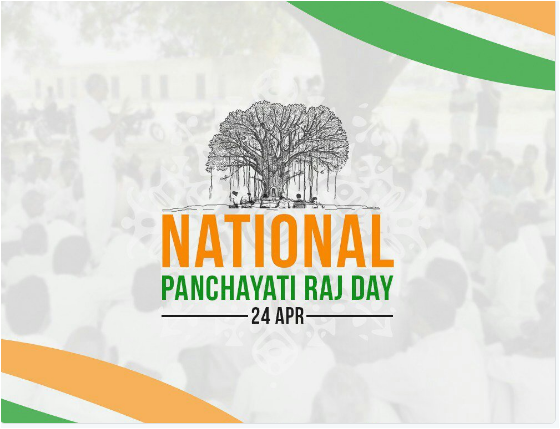RAJASTHAN
- Campaign to check diseases in villages
- The health department teams will fan out into each and every village in Rajasthan and check the locals for various ailments while undertaking activities to prevent outbreak of seasonal diseases.
- The initiative is being taken under ‘Mera Gaon, Swasth Gaon’ (My village, Healthy Village) campaign and it will be run along with the revenue Lok Adalat campaign – Nyay Aapke Dwar.
- The campaign will be launched on May 1 and continue till June 30.
- Ahead of the two-month long campaign, orientation workshops will be organized for around 7.22 lakh members of the village health and sanitation committees (VHSC) and Mahila Arogya Samitis in 43,440 villages across the state, Saraf said. Auxiliary nursing midwives (ANMS) and accredited social health activists (ASHAS) along with the VHSC members will then conduct a door-to-door survey.
- The teams would provide medical help to villagers suffering from influenza like illness, diarrhoea, sunstroke, hypertension, jaundice, diabetes, tuberculosis, and fever with joint pain etc.
- The health teams will also take steps to prevent outbreak of seasonal diseases and take measures to control the breeding of mosquitoes.
INTERNATIONAL
· India Won 8th South Asian Judo Championship
- Indiawon 8th South Asian Judo Championship held in Lalitpur, Nepal.
- On the concluding day of the championship, Indian women and men won team events.
- Keeping the unbeaten streak, Indian women whitewashed the championship by beating host Nepal by 5-0 in the final of team events.
- Indian men also won the team championship. They defeated Pakistan by 3-2 in the final.
NATIONAL
- National Panchayati Raj Day: 24 April
- National Panchayati Raj Day is the national day of India celebrated by Ministry of Panchayati Raj on 24 April annually.
- Then Prime Minister of India Manmohan Singh inaugurated the first National Panchayati Raj Day in 2010.
- Diu Smart City becomes first to run on 100% Renewable Energy during Daytime
- Diu Smart City has become the first city in India, that runs on 100% renewable energy during daytime setting a new benchmark for other cities to become clean and green.
- Diu had been importing 73% of its power from Gujarat until last year.
- It has now adopted a two-pronged approach whereby a 9 MW solar park spread over 50 hectares rocky barren land has been developed besides installing solar panels on the roof tops on 79 government buildings thereby generating 1.3 MW annually.
- To further enhance its solar capacity, Diu offers its residents a subsidy of Rs 10, 000-50,000 for installing 1-5KW roof top solar panels.
- Diu is saving about 13,000 tonnes of carbon emissions every year. Due to low-cost solar energy, power tariffs have been cut in residential category by 10% last year and 15% this year
- India highest recipient of remittances in 2017
- India retained the top position as recipient of remittances with its diaspora sending about USD 69 billion back home last year, the World Bank said.
- Remittances to India picked up sharply by 9.9 per cent, reversing the previous year’s dip, but were still short of USD 70.4 billion received in 2014.
- India was followed by China the Philippines, Mexico, Nigeria and Egypt.
· Government to pump in Rs 5,000 crore in next two years to increase micro irrigation footprints
- India has the potential to bring nearly half of its net cultivated area (140 million hectares) under micro irrigation. But so far, only 10.12 million hectares (mha) as against the estimated potential of 69.5 mha has been covered by a dedicated scheme for this purpose launched by the Centre 12 years back.
Realising that the scheme to increase the country’s micro irrigation (MI) footprint to stop indiscriminate use of groundwater has not gained desired pace, the Centre had last year set a five-year target of bringing 10 mha under MI.
- The government has already earmarked Rs 5,000 crore (Rs 2,000 crore during 2018-19 and Rs 3,000 crore during 2019-20) as an initial corpus for the MIF. The dedicated fund is expected to encourage public and private investments in sprinkler and drip irrigation.
- Giving momentum for geo-tagging of MI assets created under the central programme on the BHUVAN App, encouraging fertigation (use of fertilisers through drip irrigation system) and additional incentivisation for promoting adoption of MI are some the key issues which will be discussed during the mega meet of farm policymakers.
· AFSPA revoked in Meghalaya, parts of Arunachal
- The Centre has revoked The Armed Forces (Special Powers) Act (AFSPA) from Meghalaya since April 1.
- In Arunachal Pradesh, the impact of AFSPA was reduced to eight police stations instead of 16 police stations and in Tirap, Longding and Changlang districts bordering Assam.
- The Ministry has also relaxed the Protected Area Permit (PAP) for foreigners visiting Manipur, Mizoram and Nagaland. The PAP will be valid for five years, but residents from Pakistan, Afghanistan and China will not be allowed to visit these areas.
- The Armed Forces (Special Powers) Act, 1958 is effective in whole of Nagaland, Assam, Manipur (excluding seven assembly constituencies of Imphal) and parts of Arunachal Pradesh.
- The AFSPA gives power to army and central forces deployed in “disturbed areas” to kill anyone acting in contravention of law, arrest and search any premises without a warrant and provide cover to forces from prosecution and legal suits without Centre’s sanction.
- Tripura withdrew AFSPA in 2015. Last year, the Home Ministry gave up its power and asked the Assam government to take a decision on continuing AFSPA in the State.
- APPSC GROUP 1 Mains Tests and Notes Program
- APPSC GROUP 1 Prelims Exam - Test Series and Notes Program
- APPSC GROUP 1 Prelims and Mains Tests Series and Notes Program
- APPSC GROUP 1 Detailed Complete Prelims Notes
